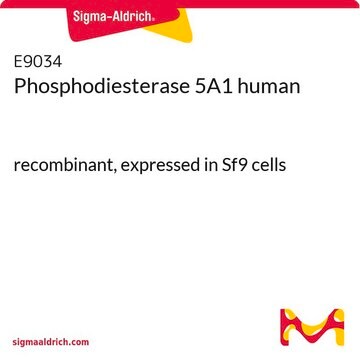N2881
4-Nitrophenyl phenylphosphonate
adenosine receptor agonist, 5′-Nucleotide Phosphodiesterase substrate
Sign Into View Organizational & Contract Pricing
All Photos(2)
About This Item
Empirical Formula (Hill Notation):
C12H10NO5P
CAS Number:
Molecular Weight:
279.19
MDL number:
UNSPSC Code:
12352204
PubChem Substance ID:
NACRES:
NA.32
Recommended Products
assay
≥98% (TLC)
form
powder
solubility
acetone: 50 mg/mL, clear, faintly yellow
storage temp.
−20°C
SMILES string
OP(=O)(Oc1ccc(cc1)N(=O)=O)c2ccccc2
InChI
1S/C12H10NO5P/c14-13(15)10-6-8-11(9-7-10)18-19(16,17)12-4-2-1-3-5-12/h1-9H,(H,16,17)
InChI key
NRGZTHQFAQCJCQ-UHFFFAOYSA-N
Substrates
5′-Nucleotide Phosphodiesterase substrate
Storage Class
11 - Combustible Solids
wgk_germany
WGK 3
flash_point_f
Not applicable
flash_point_c
Not applicable
ppe
Eyeshields, Gloves, type N95 (US)
Certificates of Analysis (COA)
Search for Certificates of Analysis (COA) by entering the products Lot/Batch Number. Lot and Batch Numbers can be found on a product’s label following the words ‘Lot’ or ‘Batch’.
Already Own This Product?
Find documentation for the products that you have recently purchased in the Document Library.
H J Deussen et al.
Bioorganic & medicinal chemistry, 8(3), 507-513 (2000-03-25)
A bifunctional activity label (8) for directed molecular evolution of lipolytic enzymes has been designed and synthesized. The structure is composed of a 4-nitrophenyl activated phosphonate, that is, a suicide substrate of lipases/esterases, connected to a biotin moiety through a
Hydrolysis of a phosphonate ester catalyzed by an enzyme from Dictyostelium discoideum.
E F Rossomando et al.
Archives of biochemistry and biophysics, 197(1), 364-366 (1979-10-01)
M Labadie et al.
Biochimie, 61(9), 1091-1094 (1979-01-01)
A "Batch" microcalorimeter is used at 30 degrees C for the study of the hydrolysis of 4-nitro-phenylphenylphosphonate with a calf-intestinal phosphonate esterase, in a tris buffer, pH 8. The yield of enzymatic hydrolysis is estimated by spectrophotometric determination of the
A G Wang et al.
Ophthalmology, 106(7), 1287-1291 (1999-07-16)
To determine the cerebral metabolism of patients with cortical visual loss. Two observational case studies. Two patients who survived acute organophosphate poisoning with respiratory failure experienced severe visual loss despite relatively normal ophthalmic examination results. Magnetic resonance imaging of the
D S Tawfik et al.
Analytical biochemistry, 202(1), 35-39 (1992-04-01)
Several laboratories have now shown that monoclonal antibodies having enzyme-like properties can be generated. The generation of catalytic antibodies makes use of the same basic procedures that have been used for the generation of binding monoclonal antibodies, yet the process
Our team of scientists has experience in all areas of research including Life Science, Material Science, Chemical Synthesis, Chromatography, Analytical and many others.
Contact Technical Service







